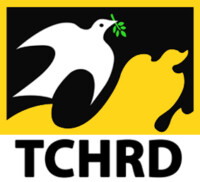
The Tibetan Centre for Human Rights and Democracy (TCHRD) demands the immediate release of Dorje Tashi, a Tibetan private entrepreneur currently serving life imprisonment and held in detention since 10 July 2008 in Chushur Prison near Lhasa city, Tibet Autonomous Region (TAR), in the Tibetan province of U-Tsang.
The Lhasa Intermediate People’s Court had sentenced Dorje Tashi to life imprisonment on 26 June 2010 for allegedly committing “loan fraud”. A decade later, his case is being appealed for the second time on the ground that the verdict itself was wrong and unfair.
An expert opinion issued in October 2018 by the Beijing-based Zheng Xin Law Firm concluded that Dorje Tashi was wrongfully convicted for “loan fraud” when he had merely committed “capital misappropriation” in the Qin Sangyuan company where he was the biggest investor. The committee that issued the opinion consisted of six Chinese legal experts. Zhou Guangquan and Li Hong are both professors and doctoral supervisors at the Tsinghua University School of Law. Zhang Ling and Ruan Qilin are professors and doctoral supervisors at the School of Criminal Justice at China University of Political Science and Law. Gao Guijun is the former president of the Fifth Criminal Division of the Supreme People’s Court. Peng Dong is the former director of Public Prosecutions Office of the Supreme People’s Procuratorate.
The expert opinion called for a thorough review of Dorje Tashi’s verdict, which was “unfair” and “fake” because there was no evidence of loan fraud. The discriminatory nature of the verdict becomes apparent when compared to a similar case tried by the same court that sentenced Dorje Tashi. In 2010, two Chinese businessmen were each sentenced to 15 years for committing “loan fraud” to the tune of 53 million yuan, the biggest loan fraud in TAR’s history. The experts noted that the Chinese businessmen received lesser sentence than Dorje Tashi and even managed to get their sentences reduced and are now out of prison. Dorje Tashi had been sentenced five months before the Chinese businessmen. This despite the fact that the chief procuratorate officer Yang Tingyi and his deputy Li Ruihong worked on both the cases that eventually led to different verdicts issued by the same court.
“The two verdicts are as different as the sky and the earth. The [Chinese businessmen] had refused to plead guilty in the loan fraud case, just as [Dorje Tashi] had done. Compared to the loan fraud of 5.3 billion committed by [them], Dorje Tashi’s [capital misappropriation] of 1.5 million yuan is a small change and yet he was given life sentence. How can such an unequal sentencing be explained?” noted the expert opinion.
The experts warned that if Dorje Tashi’s wrongful imprisonment is not changed, he might have to spend his entire life in prison for a crime he did not commit. They further noted that the future course of action on Dorje Tashi’s appeal case would prove to be a litmus test for the Chinese Justice Ministry’s ability to protect the lawful rights of private businessmen.
Recently, Dorje Tashi’s lawyer Wang Fei from Beijing Zebo Law Firm wrote on his Chinese microblog Weibo account that the TAR prison authorities had not responded to his request for a meeting with his client. The request was submitted on 23 December 2019 and on 2 January this year Wang submitted all the necessary documents required to allow the visit. Despite fulfilling all the conditions required by law, the prison authorities had not arranged a visit. Wang added that the TAR prison authorities had clearly violated the law by not arranging the visit within 48 hours as required under the “Regulations for the Lawyer to Meet with Detained Offenders”.

Wang was finally able to meet Dorje Tashi on 6 January this year, just a couple of days after he posted the above message tagging the accounts of TAR judicial bureau, Beijing justice ministry, TAR procuratorate and Lhasa Municipality procuratorate.
In November last year, the TAR authorities rejected Dorje Tashi’s first appeal after claiming in August the same year that they were reviewing the case even though they had received the appeal request six years ago.
In 2010, after Dorje Tashi’s sentencing, exile Tibetan sources reported that the former businessman who used to be one of the most successful private Tibetan entrepreneurs inside Tibet was detained on the suspicion that he provided covert support to Tibetans participating in the Lhasa protests in 2008 that eventually led to the Tibet-wide uprising in the following years and for providing donations to Tibetan exile groups. Others who were detained along with Dorje Tashi were his younger brother Dorje Tsetan, and relatives Dugkar Tsering and Tsultrim. Tsetan was sentenced to six years; Tsering to five years; and Tsultrim received two years imprisonment. Chinese authorities seized Dorje Tashi’s personal wealth including more than 530 million yuan and took possession of the famous Yak Hotel in Lhasa and another hotel owned by Tashi in Shigatse. The trial was held in secret and his family members were not allowed to attend.
“The great injustice suffered by Dorje Tashi and his family members for almost 12 years highlights the Chinese government’s unequal and discriminatory laws and policies that contribute to widespread and systematic violation of human rights of the Tibetan people,” said Tsering Tsomo, executive director of TCHRD. “We demand that the Chinese authorities reverse this disgracefully unjust verdict and release Dorje Tashi immediately and unconditionally. The Chinese government has the obligation to uphold and fulfill human rights the cornerstone of which is the principle of equality and non-discrimination. This principle forms the foundation of the rule of law.”
